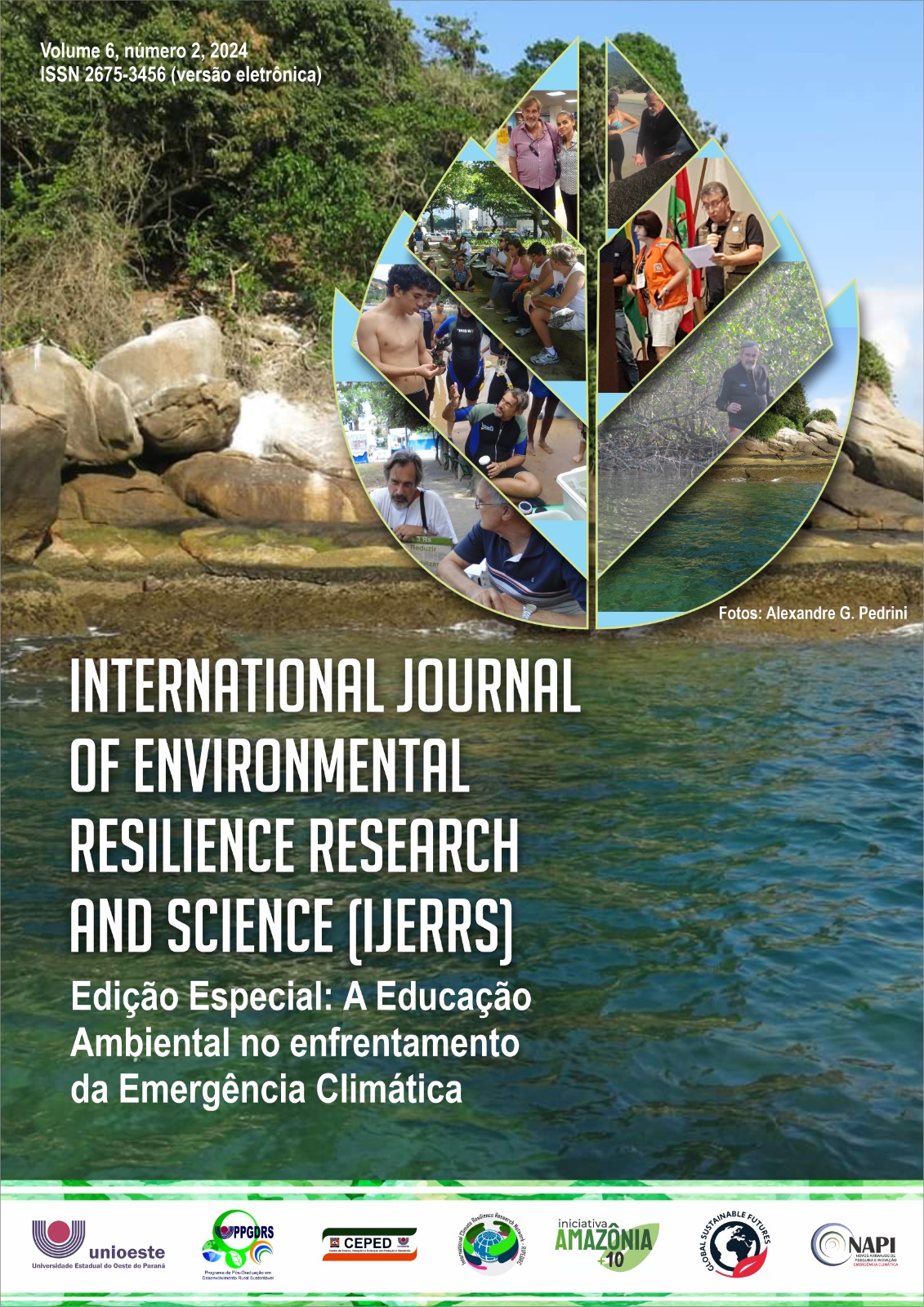Seeking to overcome civilizational challenges in basic education through the implementation of a school garden
DOI:
https://doi.org/10.48075/ijerrs.v6i2.33517Abstract
Abstract: With the aim of showing how working with school gardens can be capable of building new rationalities in science and health education, aiming to promote food and nutritional education, which considers the challenges of forming eco-political and anti-racist citizens, the Project is proposed School Garden of the Federal Center for Technological Education Celso Suckow da Fonseca - CEFET-RJ, with emphasis on the work carried out with a focus on Non-Conventional Food Plants (PANC). The work also aims to awaken students’ interest in the topic. Through face-to-face and media-based practical activities, themes are covered across the high school curriculum, seeking civic and critical training, focused on an environmentally fair and sustainable relationship. Based on the above, it is expected that, from working with the school garden, the actors involved will be able to understand that eating is a cultural habit and, therefore, can be thought of, based on less impactful possibilities for the planet.
Key Words: Civilization Challenges. Food and Nutritional Education. Science Teaching. Critical Environmental Education.
Downloads
Published
How to Cite
Issue
Section
License
Copyright (c) 2024 International Journal of Environmental Resilience Research and Science

This work is licensed under a Creative Commons Attribution-NonCommercial-ShareAlike 4.0 International License.
Aviso de Direito Autoral Creative Commons
Política para Periódicos de Acesso Livre
Autores que publicam nesta revista concordam com os seguintes termos:
1. Autores mantém os direitos autorais e concedem à revista o direito de primeira publicação, com o trabalho simultaneamente licenciado sob a Licença Creative Commons Attribution que permite o compartilhamento do trabalho com reconhecimento da autoria e publicação inicial nesta revista.2. Autores têm autorização para assumir contratos adicionais separadamente, para distribuição não-exclusiva da versão do trabalho publicada nesta revista (ex.: publicar em repositório institucional ou como capítulo de livro), com reconhecimento de autoria e publicação inicial nesta revista.
3. Autores têm permissão e são estimulados a publicar e distribuir seu trabalho online (ex.: em repositórios institucionais ou na sua página pessoal) a qualquer ponto antes ou durante o processo editorial, já que isso pode gerar alterações produtivas, bem como aumentar o impacto e a citação do trabalho publicado (Veja O Efeito do Acesso Livre).
Licença Creative Commons
Esta obra está licenciada com uma Licença Creative Commons Atribuição-NãoComercial-CompartilhaIgual 4.0 Internacional, o que permite compartilhar, copiar, distribuir, exibir, reproduzir, a totalidade ou partes desde que não tenha objetivo comercial e sejam citados os autores e a fonte.









